Depending on when you were born, you probably have a story about the absurd lengths you went to just to get your hands on a new album. For me, it was The Joshua Tree back in 1987. Not only had I been plotting for weeks like some kind of vinyl-obsessed rebel general—vinyl, cassette, and CD, because apparently I thought Bono’s voice needed to hit me in stereo, mono, and digital—but I also ended up walking two miles through a cold Toronto rainstorm after school.
No umbrella, no backup plan, just me, a soaked backpack, and the stubborn belief that the Sam the Record Man outpost at Yonge and St. Clair was basically the promised land…Harvey’s Hamburgers was also next door and my watch confirmed that it was time for third lunch.
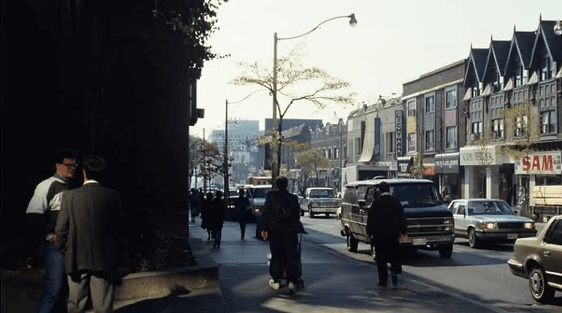
My school bag was crammed with enough useless textbooks to build a fortress—assuming you wanted a fortress made of boredom and bad back pain. I didn’t have a jacket—too cool for that, apparently—and the only place to stash the goods was under my trusty Roots sweatshirt. That was the deal: you cared about the music, you cared about the people making it, and you didn’t complain. Complaining was for people who’d never smuggled a mixtape past a vice principal.
The idea of something like Bandcamp? Back then, it wasn’t even on the radar. Nobody sat around thinking, “You know what would be great? A digital storefront where artists could actually make a living without selling their souls to a label.” We were too busy scraping together a few bucks for albums, praying our favorite bands didn’t die in plane crashes.
Bandcamp’s the kind of thing we didn’t know we needed—probably because we were too busy getting ripped off to imagine something better. The labels played Empire, the artists got scrappy, and nobody expected a platform to show up that actually gave a damn. It’s like if Han ran the business, Leia handled the books, and nobody got Force-choked for wanting fair pay.
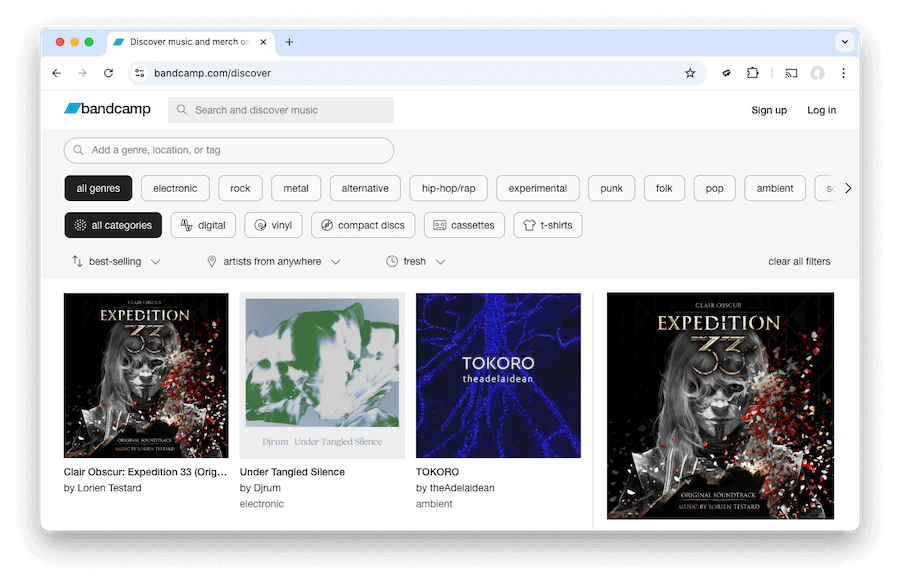
Never Visited Bandcamp? You Probably Don’t Call Your Mother Either
Shame on you if you’ve never shelled out even five bucks for an indie artist on Bandcamp. Seriously—power down your overpriced amplifier, toss your limited-edition wireless headphones into the nearest fire pit, and surrender your audiophile secret society card. Go take up stamp collecting or start a podcast about John Cusack movies if you really want to waste everyone’s time. You’re not part of the solution—you’re part of the algorithm.
And who knew that making mixtapes would stumble back into fashion during the pandemic? You remember those — the desperate little compilations we made for girls who either tossed them in the trash because our taste in music was questionable, or kept them tucked away like some lost relic… right up until you broke their father’s Nakamichi deck trying to play it.
All because you thought a few Cure songs and a cheap bottle of wine were enough to get lucky while the parents were out of town. Me neither. It’s almost funny, if you don’t think about it too hard. Like Bosch says — life’s full of bad plans and worse outcomes.
These days? People act like clicking “Buy Now” is manual labor. Bosch would just grunt, light a cigarette, and mutter something about how anything worth a damn comes with blood, smoke, and a receipt you can’t return.
If not for the vinyl revolution dragging people back toward physical media, real artist support would barely exist in 2025. Streaming killed the middle class of musicians, and buying concert tickets now feels like applying for a second mortgage.
Most of what passes for “music” these days comes with a three-figure price tag for nosebleed seats and a $50 t-shirt nobody needs. (Looking at you, Taylor Swift fans — I get it, you want to feel something. Just maybe don’t finance it like a used car loan.)
Buying records, going direct to artists, finding ways to support the people who actually make the music you love — that’s the real work. Always has been. Always will be.
In a world where algorithms decide what you hear and who gets paid, Bandcamp remains one of the last real outposts for musicians who actually make music — not just content. If you love music and you’re tired of billion-dollar platforms treating artists like background noise for ad sales, you should care about Bandcamp. It’s that simple.
No one’s coming to save independent music. Not the labels. Not the tech companies. It’s on us — the listeners who actually care — to show up, buy the album, grab the vinyl, tell a friend.
Music’s rebellion doesn’t start with some massive headline. It starts small, with one choice: support the artists you love while you still can.
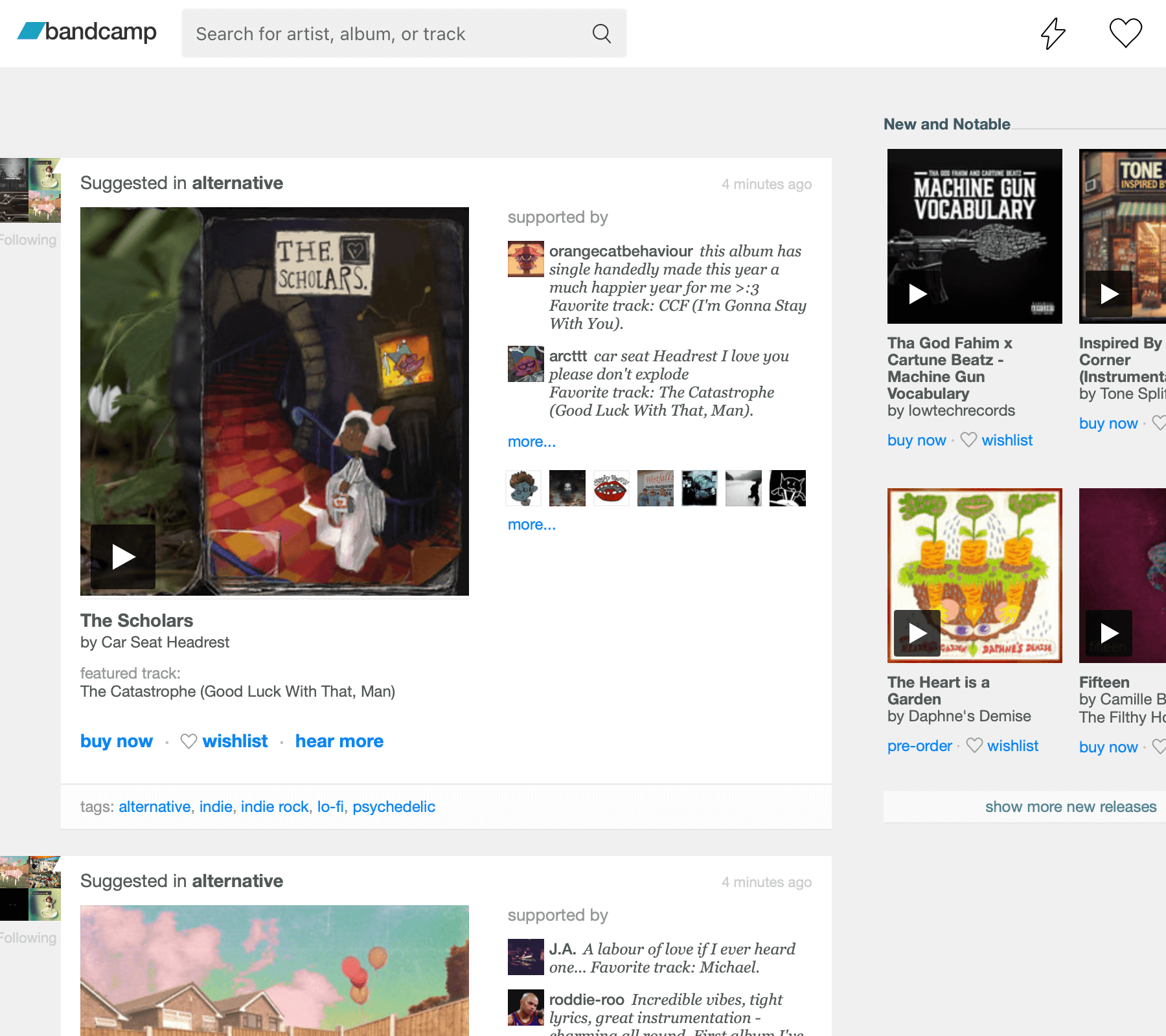
What is Bandcamp and Why Does it Matter in 2025?
Launched in 2008, Bandcamp wasn’t built to be the next Spotify. It was built to flip the entire script. Instead of squeezing artists dry and tossing them pennies for millions of streams, Bandcamp put artists first. Direct sales. Pay-what-you-want models. No gatekeepers.
It wasn’t flashy, and it didn’t have billions in venture capital lighting the way. What it had — and still has — is a simple, radical idea: musicians deserve to get paid for their work.
In a world where streaming platforms pay artists fractions of a cent per play, Bandcamp stands out as a platform that prioritizes artists’ earnings.
Fair Revenue Share: Bandcamp allows artists to keep 82% to 85% of every sale. This is a stark contrast to platforms like Spotify, where artists earn approximately $0.003 per stream.
Creative Freedom: Artists have the liberty to release their work without restrictions. Whether it’s a 45-minute ambient track recorded in a cave or a genre-defying album, Bandcamp supports it.
Control Over Pricing: Artists set their own prices, whether it’s a $1 digital download or a $30 deluxe vinyl. This autonomy is rare in the music industry.
Direct Fan Engagement: Bandcamp enables artists to connect directly with their fans, without intermediaries or algorithms dictating visibility.
Bandcamp Fridays: Since its launch in March 2020, Bandcamp Fridays have generated over $123 million directly for artists. This initiative, where Bandcamp waives its revenue share, has become a vital source of income for independent musicians, especially during challenging times like the COVID-19 pandemic.
In addition to supporting artists financially, Bandcamp Fridays have fostered a sense of community and solidarity among fans and musicians. The platform continues to host these events regularly, providing a significant boost to the independent music ecosystem.
The best part of Bandcamp? Introducing incredible artists like Poland’s Maciek Polak and countless others whose music might never have found its way into your ears otherwise. With Bandcamp, it’s not just about the well-known acts—it’s about discovering the hidden gems, the boundary-pushing creatives, and the underground talents that make the platform so unique.
It’s this kind of unfiltered access to raw, fresh music that gives Bandcamp its edge. Whether you’re digging into experimental electronic, prog, or international genres you never thought you’d encounter, Bandcamp makes the discovery part of the journey.
Indie Artists Who Found Their Voice on Bandcamp?
Alright, let’s talk about some indie artists who somehow managed to break through the noise and actually make a name for themselves, all thanks to Bandcamp. Forget the cookie-cutter pop stars and overpriced concert tickets — these are the ones who carved their own paths. No label puppeteer pulling strings here.
Car Seat Headrest
Will Toledo started recording music in his car because, well, when you’re a teenager, your family’s house isn’t exactly a soundproof studio, is it? He uploaded his lo-fi tracks to Bandcamp under the name Nervous Young Men (as if teenage angst needed more branding).
Eventually, the world realized his introspective lyrics and DIY vibe were worth something more than just being another sad boy in a car. A deal with Matador Records followed, and now his albums “Teens of Style” and “Teens of Denial” are indie classics. From bedroom demos to actual recognition — who needs a record label when you’ve got Bandcamp?
Jay Som
Melina Duterte (known by her stage name Jay Som) also had the brilliance to upload her work to Bandcamp in 2016. Her breakthrough album Anak Ko wasn’t just another indie record trying to sound like everything else. It was an intricate mix of indie rock and personal storytelling that earned her praise and even tours with heavy hitters like Mitski and Japanese Breakfast. Honestly, the fact that she found her audience this way is a reminder that sometimes, the less corporate approach is the one that works.
Established Musicians Who’ve Embraced Bandcamp
Now, you might think Bandcamp is just for the DIY crowd, right? Well, think again. Turns out, even some more established musicians have figured out that Bandcamp is a great way to cut out the middlemen and directly engage with their fanbase. Whether it’s offering exclusive releases or taking back control from the industry, a surprising number of bigger names have gotten on the Bandcamp bandwagon. Here’s a rundown of some artists who’ve dipped their toes into the indie wonderland.
Radiohead
Okay, we’re starting big here, but hear me out. Radiohead made waves back in 2007 with In Rainbows and their “pay what you want” model — because who needs a record label when you can just drop an album and watch the world squirm? Yes, the band that sold out stadiums and wrote the soundtrack to a generation’s collective breakdown decided to sidestep Spotify and offer their music directly to fans. No middlemen. No corporate overlords.
Neko Case
Neko Case turned to Bandcamp to release special editions of her albums, including Hell-On (2018), giving fans more than just the usual digital download. From vinyl to exclusive bonus tracks, Bandcamp allowed her to offer an intimate experience to her supporters, cutting out the middlemen and avoiding the major streaming platforms that take their hefty cut. For an artist like Neko, who thrives on authenticity, this direct connection with her fanbase was a natural fit.
Wu-Tang Clan
Okay, this one’s a little wild. The legendary Wu-Tang Clan released Once Upon a Time in Shaolin — a single-copy album — and sold it through an auction, making headlines for all the right (and wrong) reasons. While it’s hard to say if Wu-Tang’s Bandcamp release was more of a publicity stunt or a legitimate part of their creative process, it’s still an example of big artists using the platform for something outside the norm. You know, just your average Staten Island move: dropping an album that only one person can own and making it an event. Because why not use Bandcamp when you’re already bending the rules of reality?
So, why would these major artists even bother with Bandcamp when they could just cash in through Spotify or a label deal? Simple: control and connection.
With Bandcamp, these artists set their prices, decide what gets released, and control the terms. They don’t have to worry about navigating complex label negotiations or waiting for approval from industry executives.
Through Bandcamp, artists can reach their fans directly — whether it’s through exclusive content, limited edition releases, or just a simple thank-you note. No algorithm to mess with the relationship.
It’s a bit like giving a middle finger to the usual streaming and record label setup, where the artist is often the last to get paid. When bigger names use Bandcamp, it sends a message — maybe not all the corporate fat cats are essential to the process after all.

The Future of Bandcamp?
As of 2025, Bandcamp is under the thumb of Songtradr, the music licensing company that swooped in and bought the platform from Epic Games in 2023. Epic, of course, couldn’t make a decent run of it—purchasing Bandcamp in 2022 only to turn tail and sell it off 18 months later, after wrecking the place with layoffs and a corporate shift that could’ve been scripted by a bunch of bean-counters trying to destroy something good.
The transition to Songtradr hasn’t been exactly graceful. Half of Bandcamp’s workforce was booted during the acquisition, including many who dared to stand up for basic workers’ rights. Yeah, that’s going to bode well for indie artists. If you’re wondering whether Bandcamp’s still the artist-first paradise it once was, well, don’t hold your breath.
But despite recent ownership changes and industry turbulence, Bandcamp remains a vital lifeline for independent musicians. Its core mission—to put artists first—hasn’t wavered. Artists still keep around 85% of revenue from their music and merchandise sales, and they retain control over pricing and presentation. That level of transparency and autonomy is rare in today’s digital music landscape.
Bandcamp also empowers self-releasing artists and indie labels by offering customizable storefronts, built-in fan engagement tools, and a direct-to-fan model that emphasizes community over algorithms. Whether you’re a newcomer uploading your first EP or an established artist offering vinyl exclusives, Bandcamp remains one of the most artist-friendly platforms available—something increasingly rare in the streaming-dominated landscape.
For more information: bandcamp.com
Related Articles:
- A Reminder that it is Bandcamp Friday!
- Why was Bandcamp Sold to Epic Games?
- PODCAST: Vinyl Sales Are Not Down, Luminate and Warner Clarify Report
- The Empire Struck First: How Streaming Killed (and Accidentally Resurrected) Physical Media

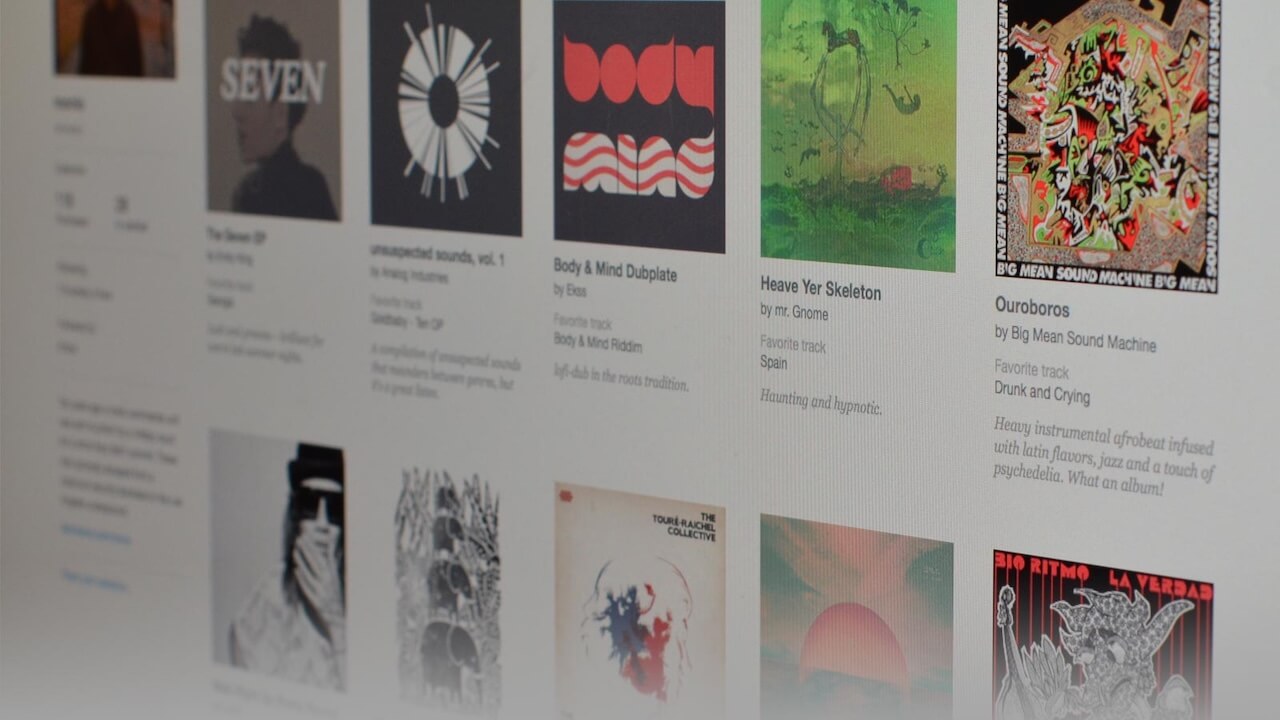
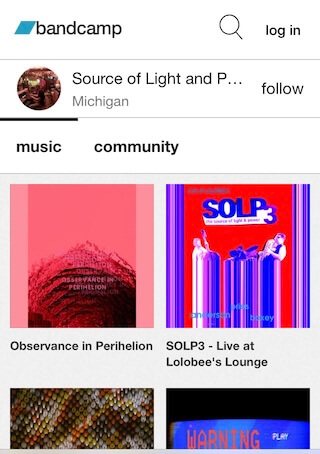

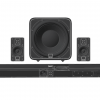






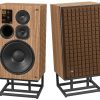



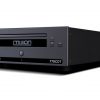



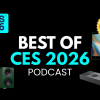













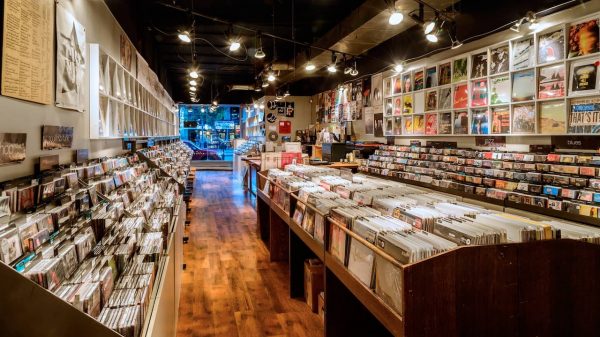
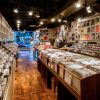
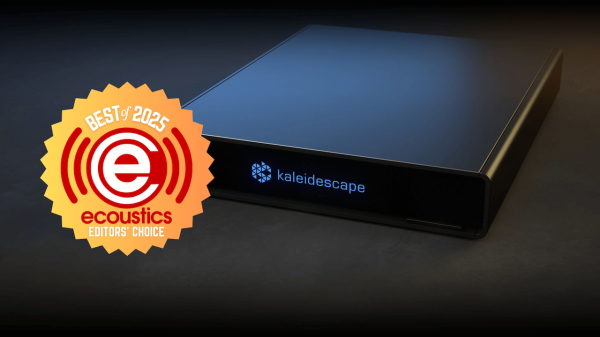
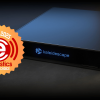
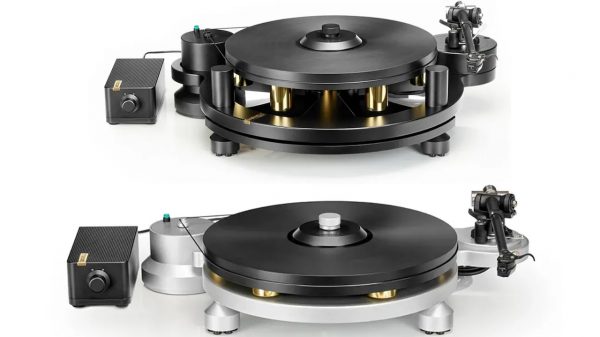












Antonio Gaspari
May 3, 2025 at 6:48 pm
I tip my cap to you sir. Just a fabulous punch in the face and I’m opening my Bandcamp account as a result.
1987 was a shit year.
Very well written.
Ian White
May 3, 2025 at 7:49 pm
Anton,
1987 was a very good year. Got my first car and even went on a date.
But yes, Bandcamp is a very different and important website that I will continue supporting for many years to come.
Appreciate the readership.
Anton Yelchin
May 3, 2025 at 8:40 pm
So my initial observation is that Bandcamp offers a lot of music that I would otherwise never listen to or know about. Not really into world music unless it’s from Africa, Germany or the Levant.
The electronic music selection is far more extensive than what a I’ve seen on Tidal or Qobuz. Certainly a lot of artists that I’ve never heard of.
Greatly appreciate the introduction. Looks like a better place to spend my money than more gear.
Ian White
May 4, 2025 at 2:09 am
And that’s the beauty of it. Music that you may not find anywhere else and the prices are realistic.
It’s worth a rather deep dive.
David
May 4, 2025 at 3:28 am
Third lunch? Our kids learned about elevensies as I read The Lord of the Rings out loud almost very night to them for 3 years. If they had known about third lunch we might never have been able to afford to feed them.
Keep up the fight, Ian.
Ian White
May 4, 2025 at 10:15 am
David,
Right? Good thing I had two jobs in HS. Love those books.
Ian
Simon
May 8, 2025 at 6:50 pm
Number one reason for me is FLAC!
I am old school and still buy CDs and don’t really stream. But whenever I buy digital downloads my first stop is always Bandcamp because it always offers FLAC and If I am buying downloads I am buying lossless for sure!
Granted, iTunes (that’s how old I am!) has more choices but buying MP3s is a big no no for little-snobby–insufferable-audiophile-me…!
So, yeah, more $$$ directly to the artists is a great incentive but mostly it’s the FLAC for me and the often 24bit availability with the seldom digital booklet included sometimes.
I really don’t understand why all the big names aren’t there already.
And YES, Sam the Record Man was indeed the promised land!!!
Ian White
May 8, 2025 at 10:41 pm
Simon,
Made me sad to see it go. It was my Disneyland…before there was a Canada’s Wonderland. I think Bandcamp is great The big names don’t get to decide those things if they want to keep their record deals.
IW